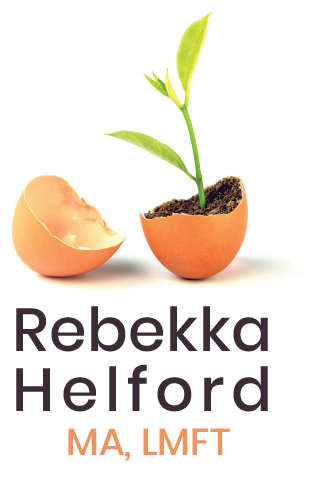What's so terrible?
"Mommy orange rainbow pillow here! No, here! HERE! NO, MOMMY, NO!!! Waaaah!"
Tears. Agonized face.
For a moment.
Then done.
This is becoming a regular occurrence around here now that my daughter is almost 2 years old. When I tell people her age, they often say, "Oh, get ready for the terrible twos!"
And as I'm seeing it unfold in front of me, I think to myself, "Really, what's so terrible?"
If anything, I'm impressed at the sheer force, velocity, and anguish of my child's big feelings; she can have simultaneous opposing desires with equally fierce power and devotion. And then it passes, like a rainstorm. It's truly an awesome sight: the byproduct of a still-developing, language-deficient human brain. Like watching an electrical circuit short wire.
Or like watching someone have a seizure. Think about it - all you can really do is keep them from hurting themselves or anyone else, and wait for it to pass. You might sit nearby, keeping a mindful, concerned watch, all the while conjuring up love and patience until the convulsions subside.
I mean, when does any of us adults get that upset? Usually rarely, and only for the most grievous of issues. It's understandable, then, that most people respond with laughter to toddlers' big, irrational outbursts. Of course, to our "rational" (really big quotes there) selves, their out of proportion reactions seem hilarious. But it isn't funny for them - it's dead serious, and if we don't remember that in the moment, the broadening smiles on our faces will only serve to intensify our children's outrage. (Remember the last time you were upset and someone smiled and cheerily told you to "Calm down," how much better did it make you feel? Exactly my point.)
No, the counterintuitive but emotionally connected way to respond is to lean into the big feeling - not have a big tantrum ourselves, mind you - but to show that we understand.
So I say to my daughter, "I know. I hear you. I didn't put the orange rainbow pillow in the right place and you didn't like it. I'll stay right here until you feel better."
And I wait. For what feels like forever, but isn't. And sure enough, the tears subside, I figure out the correct place to put the orange rainbow pillow, and our play resumes.
It's not really terrible for either of us - she recovers, as do I. If anything, it's inconvenient. Sure, it's turbulent and messy, which is exactly how development works. Take it from Dr. Ed Tronick, creator of the celebrated still-face experiment. Human development is not smooth and predictable - it happens messily, in fits and starts, as our deeply interconnected brain sheds old connections to make way for new ones, leaving in its wake disruptions in mood, sleep, and appetite. The toddler's rapidly growing brain is nearly constantly navigating these disintegrations and reintegrations, taking two steps back for every three steps forward. This is the messy dance of maturation.
And so it goes. The tears will come. I'm here to listen, sweet girl. I'll sit and nod my head and wait until you feel better, time and again. It will be hard sometimes, and at times harder than others, and I'll often wonder if I'm doing the right thing, but I believe in the power and general upward trend of human development even as I sit in awe of its mess.
Its terrible, turbulent, inconvenient, utterly beautiful mess.
Rebekka Helford is a licensed marriage and family therapist in private practice in Los Angeles, California. With over a decade of experience working with parents and young children, Rebekka specializes in short-term intensive parenting consultation, using a variety of tools including home, office, and school visits to help families navigate developmental hiccups and get back on track. Virtual visits now available!
Click here to schedule an appointment or contact Rebekka with a question – who knows, she might even answer it in her next post!



